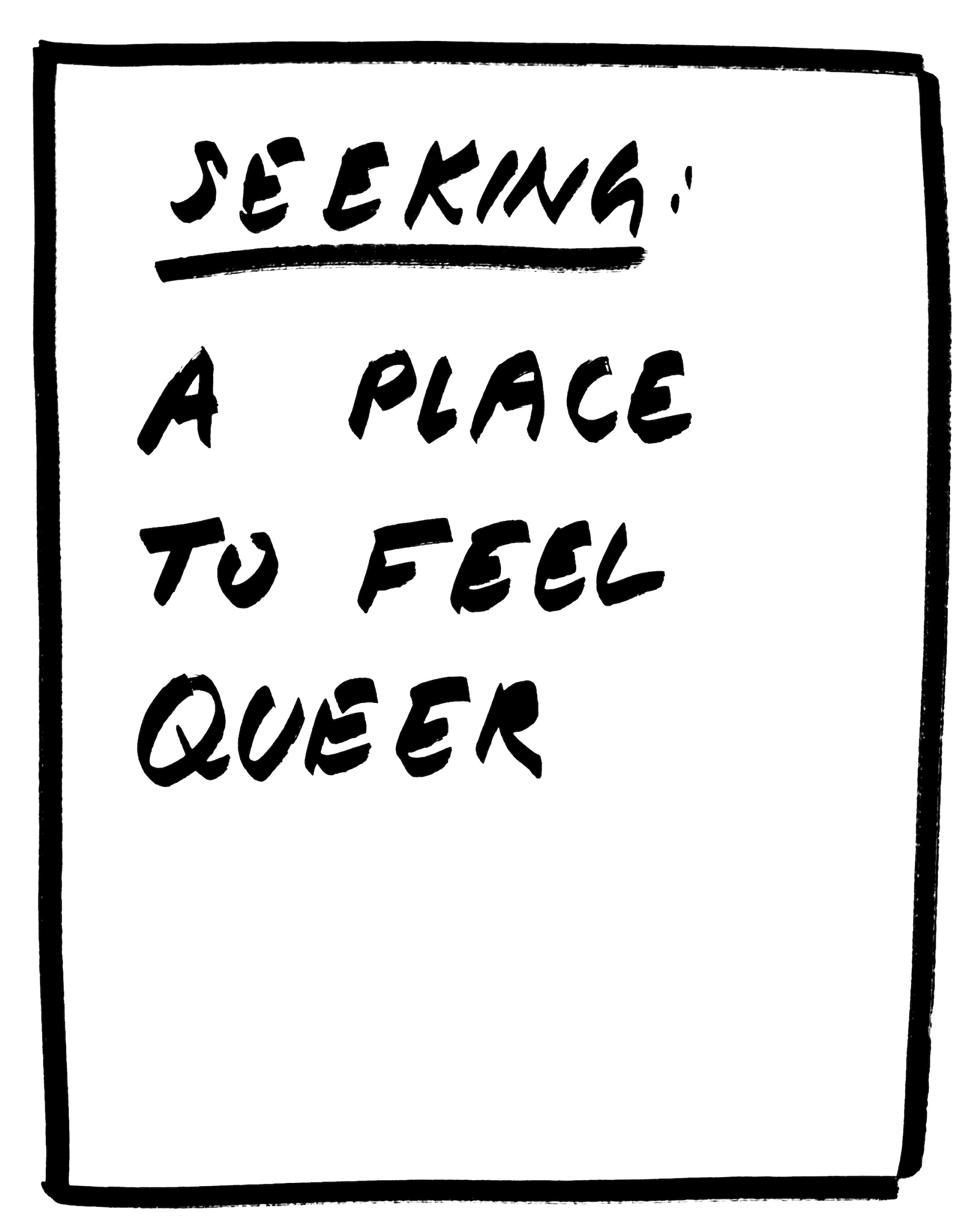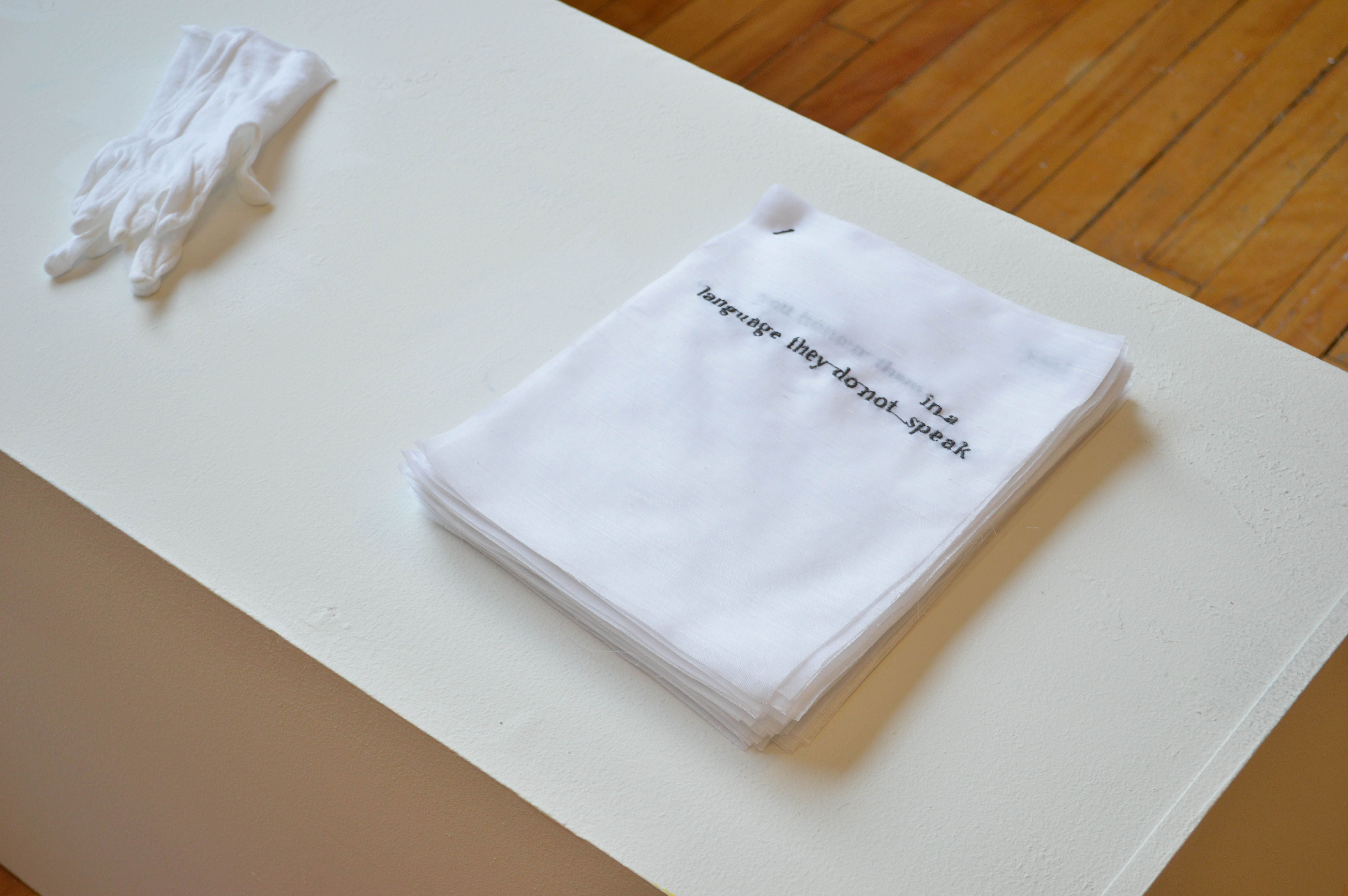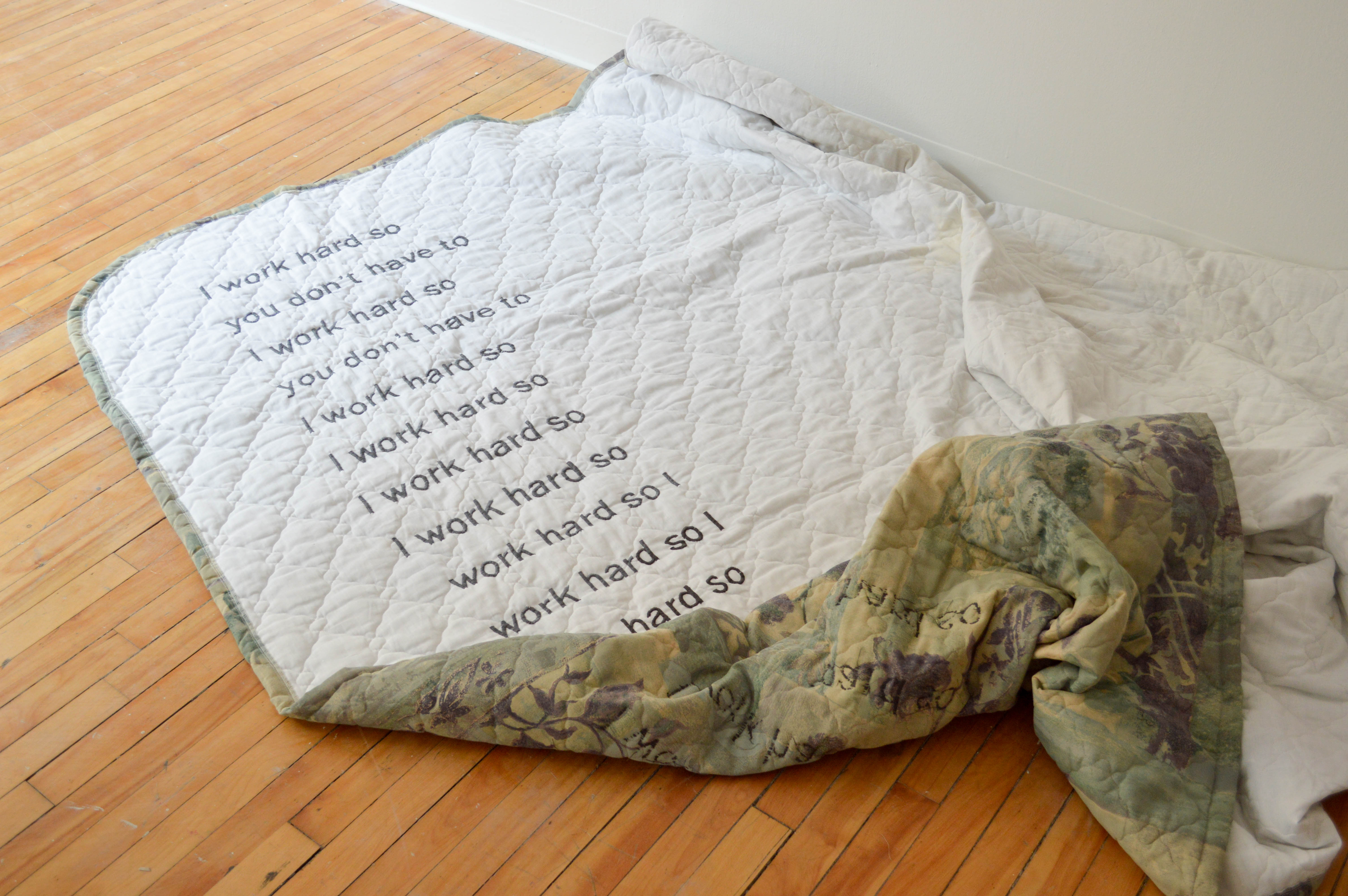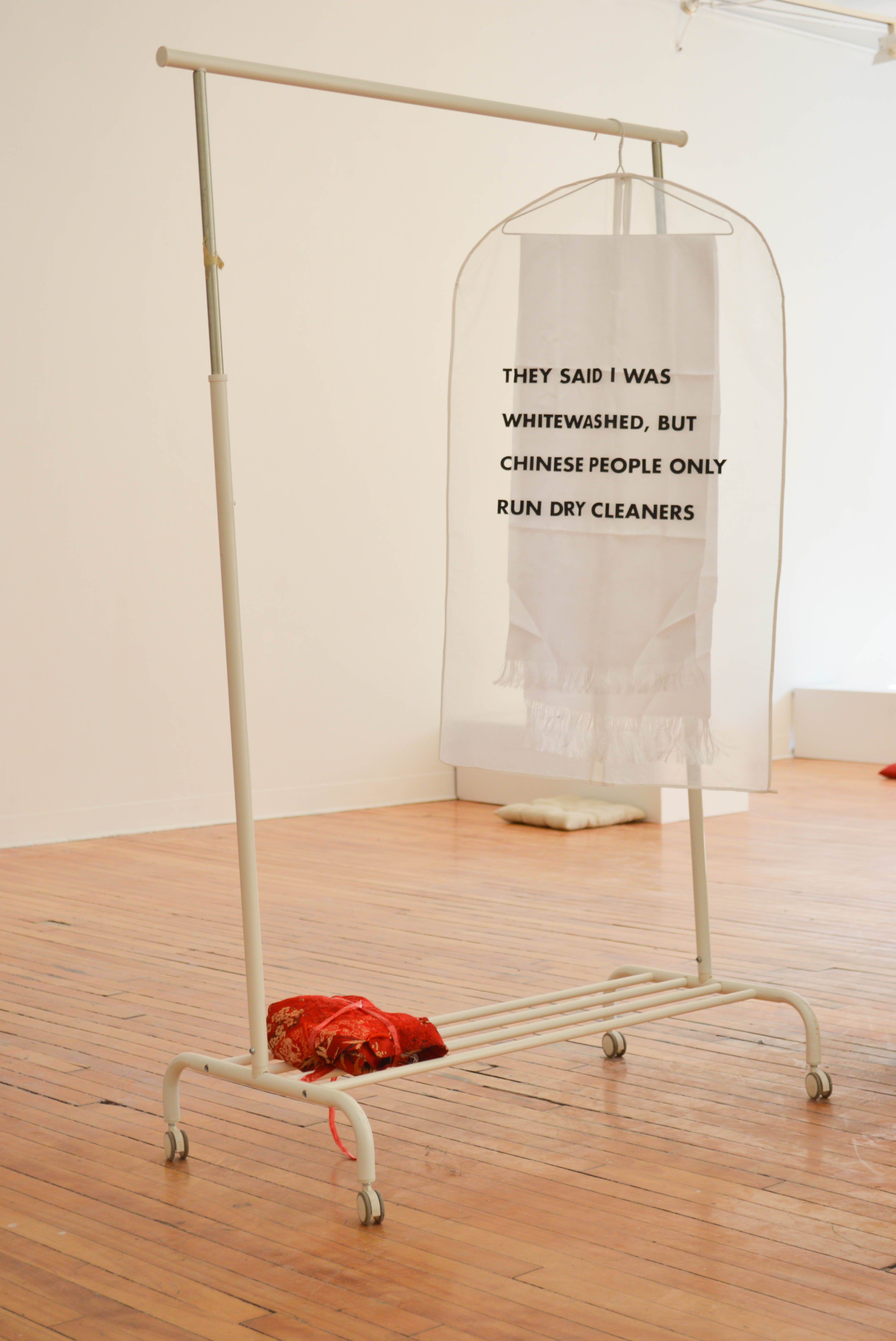Florence Yee
“I’ve found that the general blanket term of “diaspora” often eclipses the differences between class, queerness, and gender (among other things). I want to engage the term beyond “bobaralism,” beyond long-distance nationalism, beyond nostalgia” - Florence Yee, 2020.

Florence Yee’s multimedia practice engages with the complexities of diaspora, navigating the issues of class, gender, and queerness that are often subsumed (and perhaps hidden) beneath its umbrella. Their work draws upon text, sculpture, installation, and textiles to represent intimate narratives of cultural belonging and intergenerational distance.
An embroidered fabric from Yee’s Please Reply (2019) reads, “[you honour them] in a language they do not speak.” The first part of the sentence is rendered as a ghostly apparition that throws the referent of “they” into question. The spectral text “they” seems to refer to familial predecessors. The speaker intends to honour their kin, but their sense of shared language has been lost—displaced—between generations. If this fragment is disregarded, “they” could just as easily refer to those outside of the work’s inferred community—a community that is possibly diasporic, possibly queer, – or both. Language does not have to be taken literally, after all. The artwork raises evocative and ambiguous questions regarding kinship, belonging, language, community, and what it means to “honour” one's family and culture.
The artist expanded upon these themes when they joined us for (Dis)Placed’s upcoming talk series. Reflecting on their time as a student at Concordia, Yee expressed “At the time, there were very few BIPOC students and so there always needed to be so much assuredness in what I said - that there was no room left for an uncertainty that I think is necessary in talking about these complex issues...”


Florence Yee, Please Reply (polyester thread embroidered on cotton voile with archival gloves, 8.5”x 1”), 2019.
Florence Yee, A Labour of Labour (hand embroidery polyester thread on found comforter 7’x10’) 2018.

Q: Tell us about yourself. Was there a specific moment when you, as an artist, knew that you needed to create work that engaged with diasporic themes? Was this always a goal in your practice or did you gradually integrate these themes into your work? A: There was no specific moment because there were many contributing factors. I didn’t make the connections between the shame I felt over my struggling Cantonese, my parents’ unwillingness to talk about the past, my father’s compulsion to work, and the fetishizing comments I received from others when I was younger. One moment that might summarize this feeling well was my therapist’s reaction to my grandparents’ experiences of displacement: “Wow, that’s a lot of twentieth century history.”
Q: The Greater Toronto Area has become a cultural crossroad for a rich diversity of peoples from across the globe. How do you identify/position yourself as an artist in this context engaging with themes of diaspora in 2020? What are the messages surrounding this identity and current themes of belonging that you try to convey or amplify in your practice? A: It's one kind of relationship, but I’ve found that the general blanket term of “diaspora” often eclipses the differences between class, queerness, and gender (among other things). I want to engage the term beyond “boba liberalism,” beyond long-distance nationalism, beyond nostalgia. That’s why I try to be as specific as I can in my narratives, avoiding generalizations and using a style of autobiographical fiction to extend objects into their parts in/away from historical imperialism. I think intimacy is one of those ways.
Q: Have community-driven projects, such as your involvement with Tea Base, impacted how you explore diasporic themes in your own art practice? Do these projects influence how you navigate representations of assimilation, intergenerational doubt, and cultural belonging in your own work? A: I’ve been more interested in facilitating solidarity and building connections. This longer-term commitment to community has been grounding in many ways, exhausting in others, but important in the big picture. The space and people of Tea Base have given me an opportunity to make work without (or at least with less of) a white gaze. It provides a place to speak of uncomfortable, but necessary, internal dialogues within our communities.
To learn more about Yee’s artistic practice, you can view their website or follow their Instagram account.
(Dis)placed: A Conversation with Florence Yee
(Dis)Placed: A Conversation with Florence Yee via Vimeo. You can find a full transcript of the video here